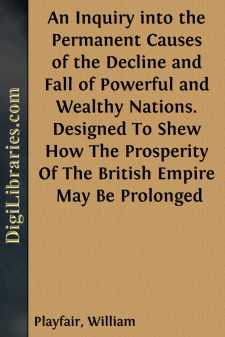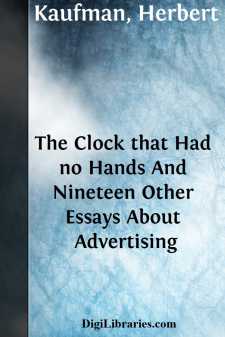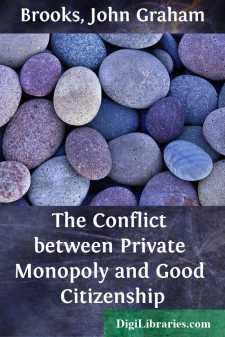Business & Economics
Business & Economics Books
Sort by:
by:
Frederic Bastiat
Capital and Interest. My object in this treatise is to examine into the real nature of the Interest of Capital, for the purpose of proving that it is lawful, and explaining why it should be perpetual. This may appear singular, and yet, I confess, I am more afraid of being too plain than too obscure. I am afraid I may weary the reader by a series of mere truisms. But it is no easy matter to avoid this...
more...
INTRODUCTION We are told every day that great social problems stand before us and demand a solution, and we are assailed by oracles, threats, and warnings in reference to those problems. There is a school of writers who are playing quite a rôle as the heralds of the coming duty and the coming woe. They assume to speak for a large, but vague and undefined, constituency, who set the task, exact a...
more...
by:
Seymour Eaton
I. COMMERCIAL TERMS AND USAGES HERE is a distinction between the usage of the names commerce and business. The interchange of products and manufactured articles between countries, or even between different sections of the same country, is usually referred to as commerce. The term business refers more particularly to our dealings at home—that is, in our own town or city. Sometimes this name is used in...
more...
by:
Samuel Smiles
CHAPTER I. INDUSTRY. "Not what I have, but what I do, is my kingdom."—Carlyle. "Productive industry is the only capital which enriches a people, and spreads national prosperity and well-being. In all labour there is profit, says Solomon. What is the science of Political Economy, but a dull sermon on this text?"—Samuel Laing. "God provides the good things of the world to serve...
more...
by:
William Playfair
P R E F A C E. ---o0o--- IF it is of importance to study by what means a nation may acquire wealth and power, it is not less so to discover by what means wealth and power, when once acquired, may be preserved. The latter inquiry is, perhaps, the more important of the two; for many nations have remained, during a long period,...
more...
MARGARET'S CHRISTMAS TREE About Christmas time Margaret was accustomed to see things tucked out of sight whenever she came around, and her feelings were never hurt when her Pretty Aunt, or her Other Aunt, or her mother, or her grandmother said: "Don't you want to run down-stairs a little while, dear!" or, "Margaret, would you mind staying out of the sitting-room all this...
more...
by:
Herbert Kaufman
Newspaper advertising is to business, what hands are to a clock. It is a direct and certain means of letting the public know what you are doing. In these days of intense and vigilant commercial contest, a dealer who does not advertise is like a clock that has no hands. He has no way of recording his movements. He can no more expect a twentieth century success with nineteenth century methods, than he...
more...
by:
Albert Shaw
THE FOUNDER'S PREFACE Despite all that can still be said against trade practices, against the business lies that are told, the false weights and measures that are used, the trade frauds to which the public is subjected, we are nearer a high commercial standard than ever before in the world's history. Man's confidence in man is greater than ever before, the commercial loss through fraud...
more...
I was born near Ottawa, Illinois, January 6th, 1852, of Scotch-Irish descent. My great-great-grandfather Johnston was a Presbyterian clergyman, who graduated from the University of Edinburg, Scotland. My mother's name was Finch. The family originally came from New England and were typical Yankees as far as I have been able to trace them. My father, whose full name I bear, died six months previous...
more...
For a special purpose, I have had occasion to examine with care the comments upon American life and institutions made by foreign critics during the period that extends from the later part of the eighteenth century up to the present time. If one puts aside the frivolous and ill-tempered studies and considers alone the fairer and more competent observers, the least pleasant of all the criticisms is that...
more...











